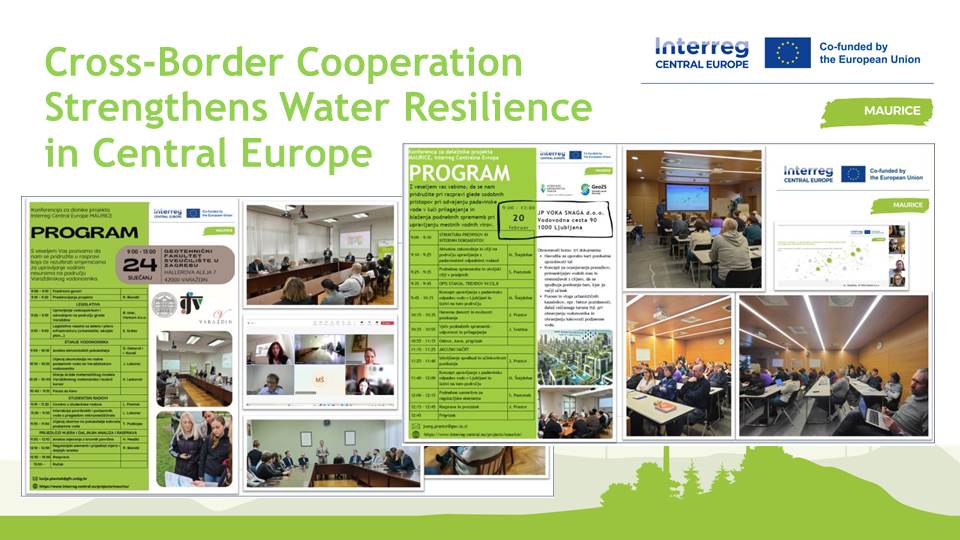In Varaždin, local and national stakeholders gathered to discuss sustainable water management strategies tailored to regional conditions. The event featured expert presentations on climate data analysis, aquifer modeling, retention impacts, and green infrastructure policy. Stakeholders from academic, governmental, and utility sectors—including the City of Varaždin, Croatian Waters, and VARKOM d.o.o.—actively contributed to the dialogue, laying the foundation for future measures based on sound data and collective expertise.
One month later, the spotlight turned to Ljubljana, where the Geological Survey of Slovenia and JP VOKA SNAGA hosted a dynamic event on stormwater management in the face of climate change. The conference brought together municipal authorities, engineers, urban planners, and environmental experts to tackle current challenges in stormwater legislation, infiltration potential, and resilient infrastructure design. Discussions reflected a shared commitment to reducing pressure on public sewers, enhancing infiltration practices, and boosting adaptation efforts.
These two events clearly show that cooperation across regions and disciplines is not only valuable—but essential. Despite differing local conditions, the pilot areas share many of the same goals: protecting groundwater, adapting to changing precipitation patterns, and finding sustainable solutions for urban water management.
By bringing together practitioners from across Central Europe, MAURICE fosters a learning environment where practical, locally relevant solutions can be jointly developed and tested, with the potential for broader application in similar urban contexts.
Together, we are shaping a more resilient future—one drop, one region, one partnership at a time.
